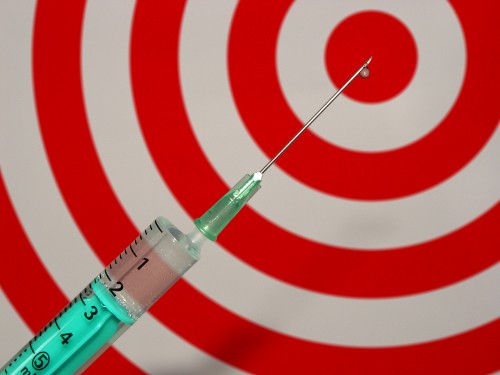This is according to a new study by Prof. Gary Gellerman, Head of the Department of Biological Chemistry at Ariel University

Traditional drug administration (such as oral drug ingestion or intravenous injection) is based on the absorption of the drug into all body tissues so that only a small portion of the drug reaches the target organ.
In many cases, such as chemotherapy treatments for cancer patients, the side effects associated with the treatments harm the patient's health and cause many health problems such as susceptibility to infections due to damage to healthy bone marrow cells, anemia, damage to the kidneys, liver, intestines, damage to the hair follicles causing hair loss, and more.
Research by Prof. Gerry Gellerman, Head of the Department of Biological Chemistry at Ariel University, deals with the construction of platforms for carrying a cocktail of drugs for the precise targeting of the target. The platform is capable of simultaneously binding several drugs of different types (or many molecules of a particular drug), when each drug has an independent release regime. The platform with the drugs carried on it can be linked to an antibody, peptide (or any other specific molecule) in order to transport the drugs to the target tissue. The platform is similar in shape to a multi-armed octopus, each arm can independently connect the drug to the carrier that will lead it to the cancer cell. The carrier that actually directs the medicine, knows how to identify those cells and penetrate inside.
Targeted drug delivery has a variety of advantages, the main of which is the effect of the drug in a more effective and prolonged manner, so that a reduction in the dose of the drug taken by the patient is possible, and in addition there is a reduction in side effects.
The main innovation in the platform, which is being tested by Prof. Gellerman from Ariel University, will allow an improvement in the efficiency of drug treatment, ie: reducing the toxic effect of the drug on the body, reducing the side effects, increasing the convenience of using the drug and adapting it to the user, which is one of the challenges currently facing the medical technology industry .
This challenge is an incentive for the development of innovative technologies in many therapeutic areas such as cancer, inflammatory diseases, pain management and infectious diseases, where the whole issue of directing drugs directly is one of the main technological directions. In the future, this technology should meet the existing need by allowing one administration of a personalized drug cocktail to the patient, when the drugs are placed on the target organ, and each drug is released according to the predefined need.
One of the main ideas behind the detailed technology is the use of ineffective drugs or drug candidates that failed in human clinical trials due to being too toxic or not effective enough. It is important to note that in the case of failure of a drug candidate at an advanced stage, it means tens/hundreds of millions of dollars going down the drain. By connecting such a candidate to the platform, the level of toxicity can be lowered so that a smaller amount of the active substance is required.
It is true that Prof. Gellerman is in collaboration with the Sheba Hospital to begin the phase of experiments on animals.
Prof. Gellerman, head of the biological chemistry department at Ariel University, adds that: "This concept may revolutionize pharmaceutical companies, since the number of candidates and drugs that are invalid for human use is much greater than the drugs approved by the authorities." "In the future, when a patient comes and says he is receiving a certain treatment, I will be able, by synthetic manipulation, to connect the same or similar drugs to a carrier, and after a suitable formulation inject them back into the patient's vein. The whole world is now moving to the issue of adjusting medicines uniquely for each person. If I am able to put together a stockpile of medicines for a person that suits him, I will reach a situation where I can define medicines in a personal way". "The new idea is that we are able to do this with several drugs at the same time that paralyze different cancer mechanisms, so that even a person with a small tumor can receive such a cocktail of drugs."

2 תגובות
Mmm I wonder if those who boycott the products of Judea and Samaria will use the drugs that will be found at Ariel University...
"Candidate, formulation, manipulation" ... and other concepts for everyone
There are words in Hebrew,
So why not write in Hebrew?